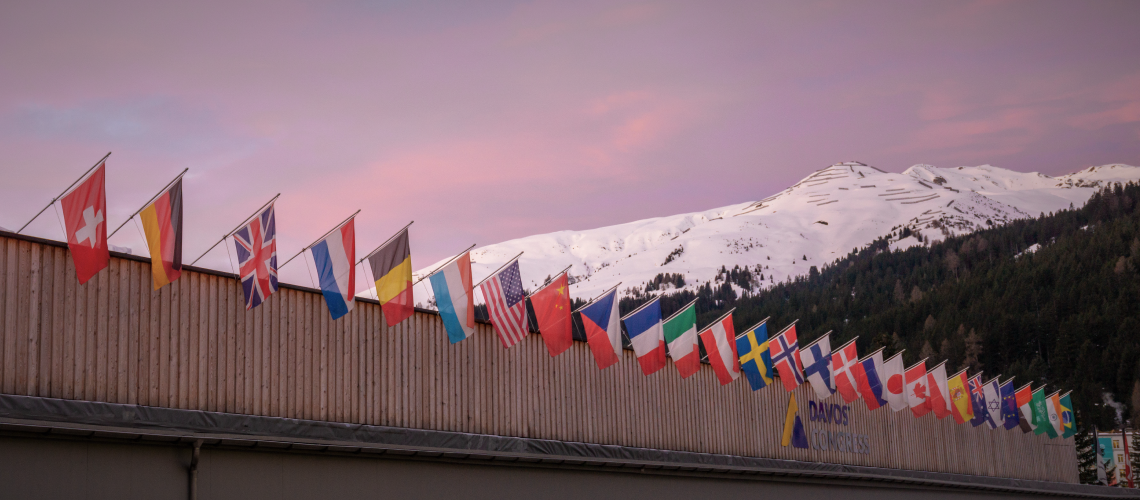
The travels made by governments and large institutions within the framework of their international relations - to deal with State affairs, the negotiation and conclusion of treaties, agreements, covenants, international conventions, the normal course of diplomatic and consular relations, or the participation in international conferences, among others - are dynamic and have a high positive impact at the economic and social level.
This positive impact of governmental and institutional travel in the host destinations enhances their external reputation, also supports their recovery and/or consolidation, while contributing to the achievement of the United Nations Sustainable Development Goals by improving social, economic and environmental conditions, thus laying the foundation for sustained, inclusive economic growth that contributes to reducing inequality and poverty, as well as promoting sustainable cities and communities.
Given the above, this type of travel is extremely attractive for destination managers, understood from the perspective of international positioning, which can be analyzed from multiple perspectives such as reputation and knowledge of the destination, or as a driver of economic and social development. Among other reasons because, as it is clear, they have an indirect positive effect on the rest of the sectors in the destination itself.
A clear example of how this type of travel improves the positioning of the destinations -and has a positive effect on the rest of the sectors in the destination and in the region- is Davos (Switzerland), which went from being a tourist destination focused mainly on winter sports to being internationally known -and located on the map- for being the headquarters of the World Economic Forum, also called 'Davos Forum'. But international positioning should not be understood only from the point of view of "knowledge of the destination", since other cities that are already positioned -and already located on the map because they are big capitals- as can happen with Madrid (Spain) and Addis Ababa (Ethiopia), have seen their international, economic, social and tourist positioning increase due to the positive effect of the celebration of the COP25, in the case of Madrid, or for being the headquarters of the African Union, in the case of Addis Ababa.
Preparing the climate summit (COP25) in Madrid in just four weeks was a challenge in logistical terms, as well as in terms of security due to the profile of the guests, since top political leaders and big business leaders attended. However, its organizational success has allowed Madrid to reaffirm its international position at the institutional, political, social, economic and, obviously, tourist levels.
In this sense, Isabel Díaz Ayuso, President of the Community of Madrid, underlined before the celebration of the COP25: "The organization is looking for a safe and stable environment and has chosen Madrid because they see us as a city that welcomes, that knows how to prepare great events, that provides accommodation facilities, that has great transport and infrastructure", according to statements published in the newspaper El País in its edition of 02/11/2019. A clear example of the strengthening of reputation, economic growth and international positioning.
Destinations such as Detroit (USA), or the already mentioned capital of Ethiopia, Addis Ababa, know how to benefit from this type of travel to generate a new market perspective (niche), since the implementation and development of this type of travel -and events associated with them-, as well as the implementation of policies that benefit their realization, generate a high tourist, economic and social interest, among other aspects.
In seven years, Detroit has experienced historic growth, going from declaring bankruptcy in 2013 to positioning itself as one of the cities with the greatest projection in the United States during 2019, thanks to the involvement of its authorities who devised a management system that succeeded in making the city re-emerge as quickly and effectively as possible. Today, Detroit has become a 'Smart City' that offers its citizens and visitors technological services that facilitate lifestyle. It has also positioned itself as a sustainable destination whose infrastructure has reduced energy consumption and CO2 emissions. One of the measures adopted was the cultivation of urban gardens to help residents become self-sufficient. In addition to autonomous vehicles, facial recognition cameras in buildings, among other technological services that attract innovation and prosperity of the territory. All this has led to an increase in travel -including governmental and institutional travel-, and therefore an increase in the celebration of events, summits, international forums, etc.
For Addis Ababa, its designation as the headquarters of the African Union - a political union made up of 55 African States, whose objectives are to promote unity and solidarity among its members, eliminate the vestiges of the colonial period, coordinate development cooperation, safeguard sovereignty and promote international cooperation - has made it possible, through appropriate strategic planning, to promote the destination, to make its way in a developing area and to promote the creation of logistical, service and communication infrastructures.
The role played by destinations as managers of the space in which a summit or international forum takes place enhances the image they project to the world, as we can see illustrated in the examples above. The impact of this travelling activity, which has a wide dimension and enjoys its own dynamism, provides the destinations - and therefore the governments and institutions, the service suppliers, and the professionals - with a new market perspective, generating a high tourist, economic and social interest, which positions the cities within the map. The sustainable development -economic, social and touristic- of a destination begins with the active participation and commitment of all parties to promote responsible management.
Furthermore, tourism is an activity that goes beyond its own sector, impacting other areas of action, thanks to the construction of infrastructures, the creation of jobs, contact with the environment and the diffusion of a territory's culture. In this way, there are many reasons why the cities that host governmental and institutional travel, framed within the new Governmental and Institutional Travel and Tourism (GITT) sector, are a growth force for the destinations themselves, achieving their development at a local level and strengthening their presence within the international arena.



